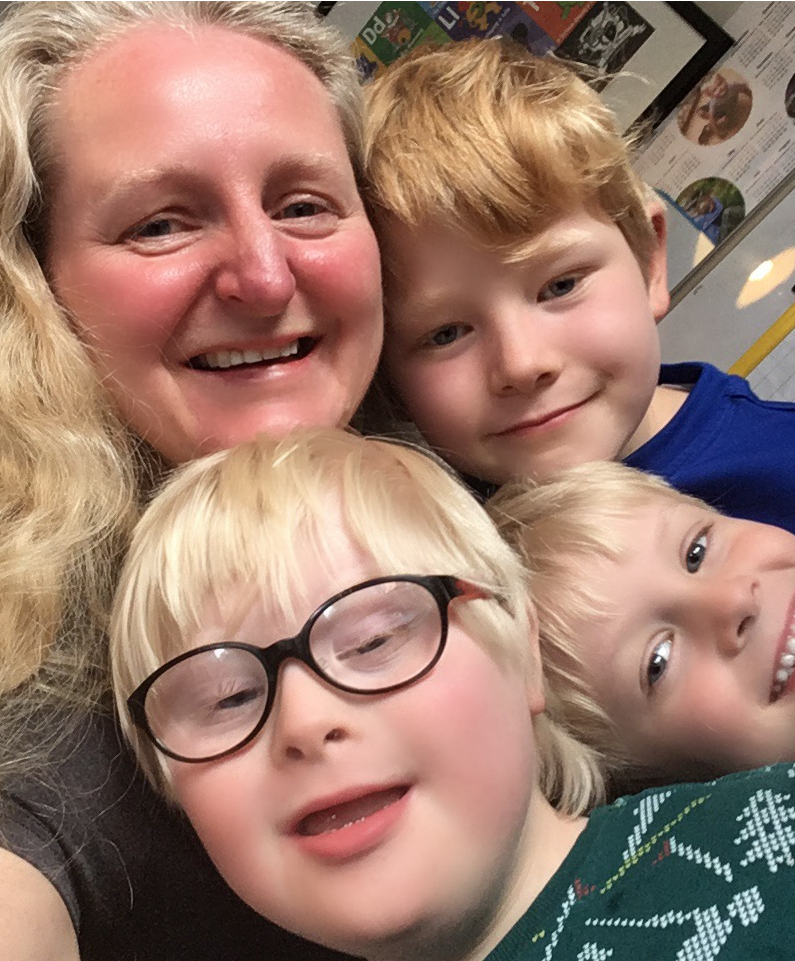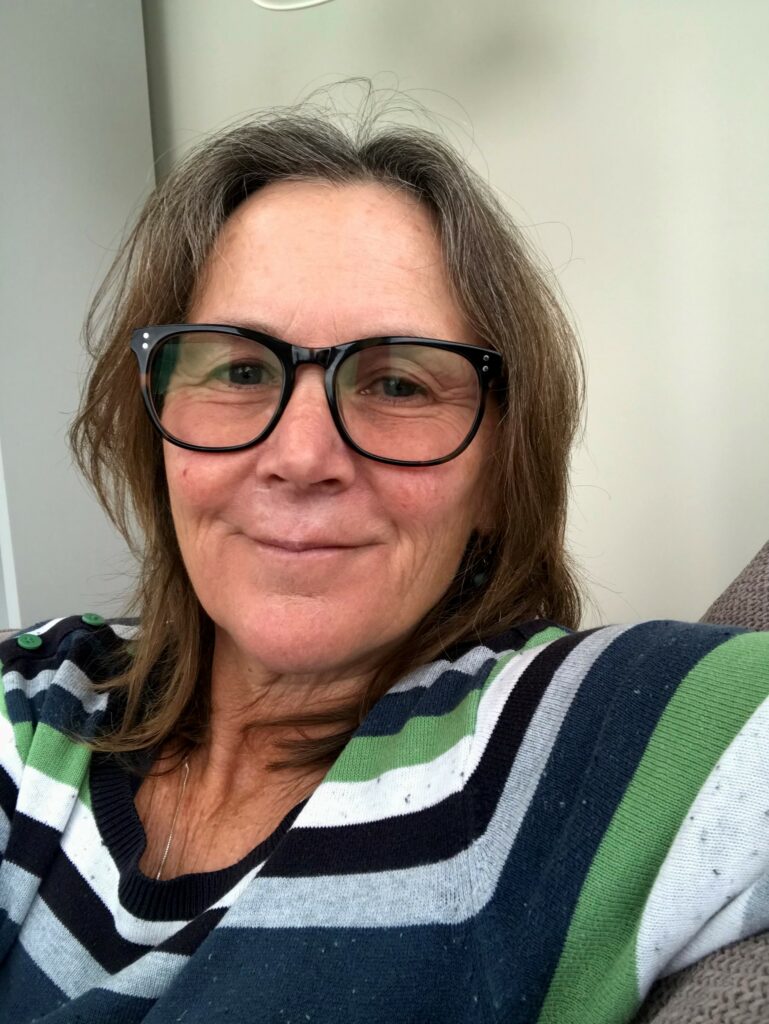“Where do we actually sit on the priority list? Probably the bottom”

Karen lives with her partner, Mike, and their three young boys. Their middle son, Lance, was first diagnosed with Down’s syndrome in the hospital after she gave birth, and Karen didn’t know how to navigate the world of having a child with a disability.
But she found a way, being fortunate enough to have access to excellent medical care, as well as finding a community of other parents in the same situation. Still, she recognises how the level of care they receive for their child is mostly down to luck.
Here, she speaks candidly about the unfair ‘postcode’ lottery of care, as well as how difficult lockdown has been, even for somebody as positive as she is.
“Lance was born three weeks early. They told me he had Down’s syndrome. My partner and I were very matter of fact. We thought, well okay, this was not what we were expecting but we’ll figure it out.
I’m a person who, as a parent and as an individual, is capable. I know how to talk to doctors and do what I can to find the best care. You ask for it, and you get it – but if you don’t know to ask, you don’t get. Nobody came to me with a list saying here’s what you need to do. There were no signposts.
I’m lucky Lance has a paediatrician that I met on day one, who is still the centre point for us. I can engage with her. We meet, depending on what’s happening in his life, six months to annually. I think my experience is quite different from others. I think that’s literally because of the postcode lottery that we live in, and the people who were involved in his care.
Because of our postcode, we know we got early intervention through the NHS. I can match you up to maybe 10 children from different families who have exactly the same profile as Lance, and every single one of them is getting a very different level of care.
I think we need to start with a baseline for somebody who has been diagnosed with Down’s syndrome. And then let’s look at what additional needs they need. Because, to me, that is a much fairer system. I think to myself, that if you want a fair system, the child has to be put front and centre, and it has to be irrespective of postcode, parentage, support network.

Still, in lockdown I was floored. For the first time since Lance was born, I really struggled without the help. I really struggled to see some of the positives, because it was so draining, and I didn’t have any backup. I’m an extremely strong individual. I can cope with a lot. But it really brought home to me that, while I have challenges, a lot of other parents have it a lot worse.
I think the government has listened. But when things hit the fan I question: where do we actually sit on the priority list? Probably at the bottom.
You know, I love my life. I love my family and I wouldn’t change it for the world. But if I could change one thing, I would love it if every child with down syndrome got the same support Lance was offered, and the level of care and interaction. Because that would make the world that we live in much happier.”
You may also be interested in

At the age of 56, Allie quit her job as a teacher to care for her mother, Enid, who has dementia…read more

Debbie’s own experience of being hugely let down by the health and social care system began when her father developed dementia…read more

Allie shares her struggle for her diagnosis and treatment of endometriosis to be taken seriously doctors… read more